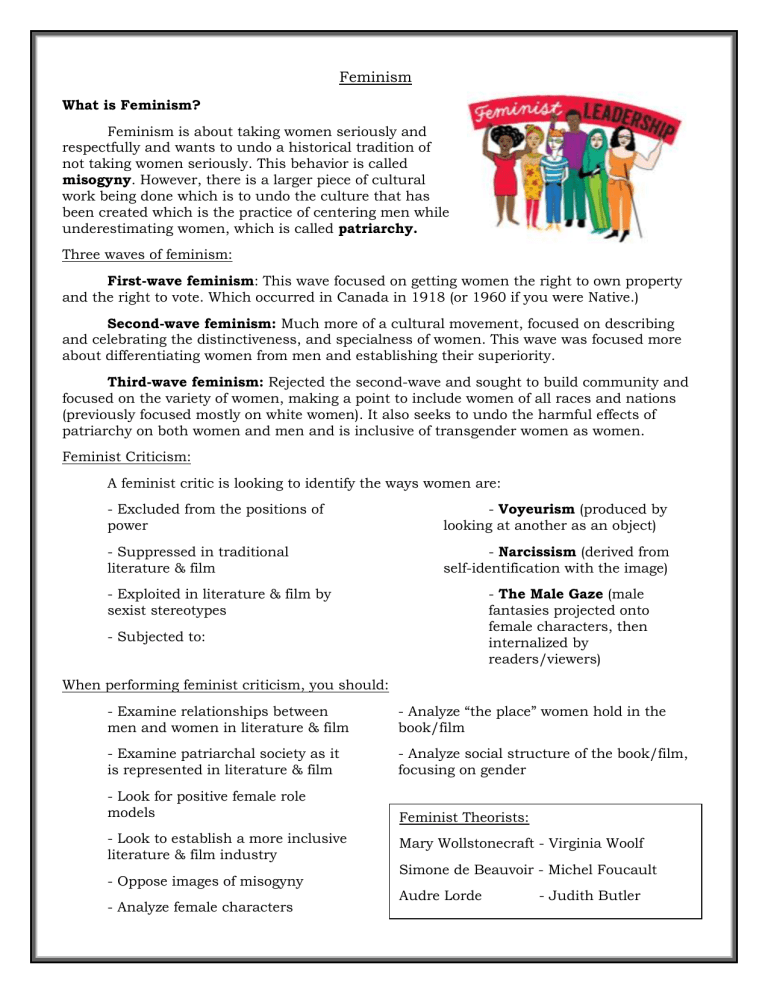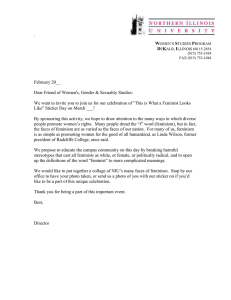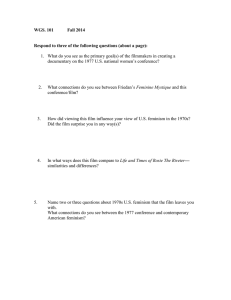
Feminism What is Feminism? Feminism is about taking women seriously and respectfully and wants to undo a historical tradition of not taking women seriously. This behavior is called misogyny. However, there is a larger piece of cultural work being done which is to undo the culture that has been created which is the practice of centering men while underestimating women, which is called patriarchy. Three waves of feminism: First-wave feminism: This wave focused on getting women the right to own property and the right to vote. Which occurred in Canada in 1918 (or 1960 if you were Native.) Second-wave feminism: Much more of a cultural movement, focused on describing and celebrating the distinctiveness, and specialness of women. This wave was focused more about differentiating women from men and establishing their superiority. Third-wave feminism: Rejected the second-wave and sought to build community and focused on the variety of women, making a point to include women of all races and nations (previously focused mostly on white women). It also seeks to undo the harmful effects of patriarchy on both women and men and is inclusive of transgender women as women. Feminist Criticism: A feminist critic is looking to identify the ways women are: - Excluded from the positions of power - Voyeurism (produced by looking at another as an object) - Suppressed in traditional literature & film - Narcissism (derived from self-identification with the image) - Exploited in literature & film by sexist stereotypes - The Male Gaze (male fantasies projected onto female characters, then internalized by readers/viewers) - Subjected to: When performing feminist criticism, you should: - Examine relationships between men and women in literature & film - Analyze “the place” women hold in the book/film - Examine patriarchal society as it is represented in literature & film - Analyze social structure of the book/film, focusing on gender - Look for positive female role models Feminist Theorists: - Look to establish a more inclusive literature & film industry - Oppose images of misogyny - Analyze female characters Mary Wollstonecraft - Virginia Woolf Simone de Beauvoir - Michel Foucault Audre Lorde - Judith Butler




